


















The academic year 2021/22 provided an opportunity for a stable learning experience for our students, the first for over two years. Staff put in significant time and expertise to ensure the transition to in-person teaching and learning was a positive experience. The organisation’s endeavours, with the student experience always at the centre of all decisionmaking, were recognised by Ofsted in May 2022. The report notes;
Students are very proud to study at the different college campuses. They value highly the active role that they take in working with leaders and staff to create an inclusive and vibrant community.
Students benefit from very safe and inclusive learning environments across the college sites. They have access to support for their mental health, basic needs and development of their digital skills, including transport and food parcels. Students on programmes for English for speakers of other languages (ESOL) enjoy learning about British culture as well as sharing and comparing their experiences outside of the United Kingdom. They speak freely about living in a democratic
country and different religious beliefs, and they value the opportunity to learn about each other’s heritage. Students benefit from a strong culture of positive respect and tolerance across all college sites. Students of different abilities and backgrounds work harmoniously together and support and inspire each other. In performing arts, students in rehearsal sessions listen to each other and share ideas, and their contributions are valued by all. Students are very confident that their views will be listened to by staff and their peers.
All aspects of our responsibilities in terms of equality, diversity and inclusion were maintained during this year, with some innovative approaches and positive impact demonstrated. The Equality, Diversity & Inclusion Group has been strengthened with revised Terms of Reference, a diverse membership, refreshed Single Equality Scheme and actions.
The college group is proud of the care it has taken during this time to ensure positive outcomes for all its students and feedback from students alongside attendance and retention data supports our commitment.
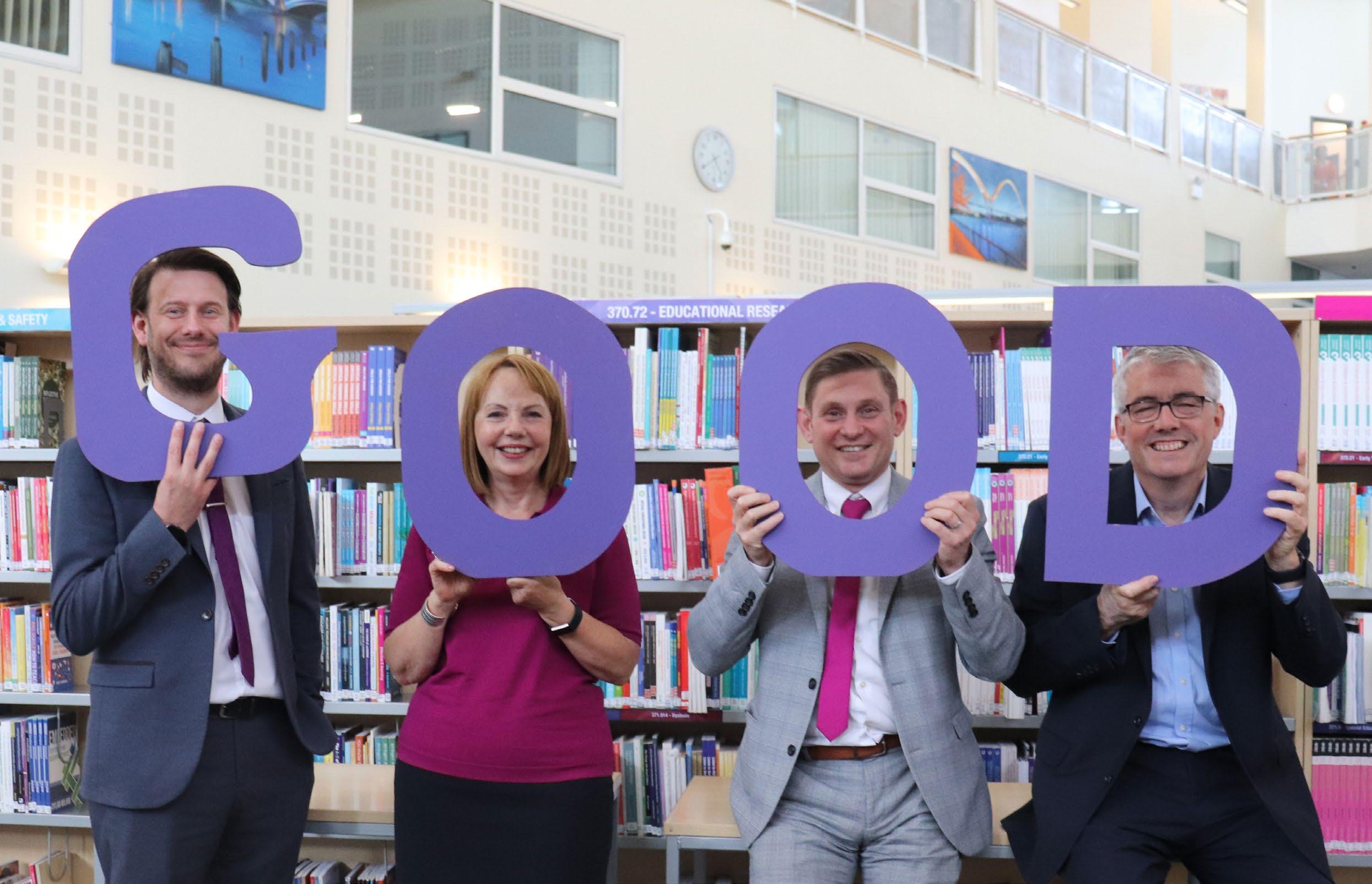
The Single Equality Scheme is a reflection of our group’s values and a demonstration of our commitment to our responsibilities under the Equality Act, 2010.
We believe that all those who form the community at The Education Training Collective (Etc.) (Governors, staff, students, visitors and contractors) are treated with dignity and respect. We take opportunities to celebrate diversity and we do everything we can to ensure there are no barriers to equality of opportunity.
• High performing but with heart
• Quietly confident with absolute focus on success
• Building real skills for real jobs

• Proud to serve our students and communities
• Aspirational but with humility
Our
Our objectives for 2021/22 are as follows:
1. In 21-22 to understand the staff profile and work force make-up in relation to the protected characteristics and identify any emergent themes aligned to the stated aims in the Single Equality Scheme
2. To promote methods of ensuring all resources are accessible across the group
3. To interrogate attendance, retention and achievement data of LAC/those with Social workers to promote equality of outcomes and interventions
4. Investigate integration of ‘Pronouns’ across the group and produce a draft action plan for implementation
5. Achieve the NNECL Quality Mark

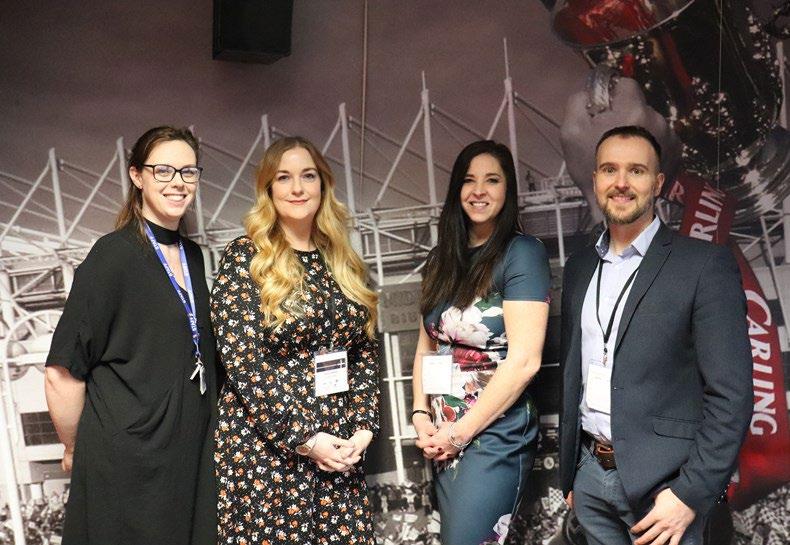

The Equality Act 2010 outlines our responsibilities to:

• Eliminate unlawful discrimination, harassment and victimisation and any other conduct prohibited by the Act
• Advance equality of opportunity between people who share a protected characteristic and people who do not share it
• Foster good relations between people who share a protected characteristic and people who do not share it.
The Equality Act brings together several pieces of existing legislation and expands the number of protected groups which are now categorised according to:
• Age
• Being or becoming a transsexual person
• Marriage and Civil Partnership
• Pregnancy and Maternity
• Disability
• Race, including colour, nationality, ethnic or national origin
• Religion, belief and lack of religion/belief
• Sex
• Sexual orientation
The College’s mean gender pay gap is £1.92 per hour (£2.04 per hour in 20/21).
Median gender pay gap is £2.21 per hour (£2.62 per hour in 20/21).
This Single Equality Scheme describes our unified approach and strong commitment to equality, diversity and inclusion across the College community, our legal obligations and how we will achieve this.
The Curriculum and Student Support & Wellbeing Team can contribute to some key aspects of the Equality Duty, particularly in regard to promoting and celebrating diversity as part of our responsibility under the Prevent Duty.
In accordance with The Equality Act (Specific Duties and Public Authorities) Regulations 2017, the group has a legal duty to report on Gender Pay and to publish, both on its own website and on a government website, using six different measures:
• Mean Gender Pay Gap
• Median Gender Pay Gap
• Mean Bonus Gap
• Median Bonus Gap
• Proportion of males and females receiving a bonus payment
• Proportion of males and females in each pay quartile
Governors are committed to promoting Equality, Diversity and inclusion within the Etc. and more widely within the communities that we serve. Examples of activity in which governors have promoted equality of opportunity for learners and staff include:
• Governors appoint a named Equality and Diversity Governor, with a remit to: ensure governors are aware of the Corporation’s statutory responsibilities in relation to equality, diversity and inclusion, and that action planning helps Etc. be as good as it can be; gain an understanding of the performance of group learners from an equality and diversity perspective and the group’s action to address any performance gaps; consider information on activities to embed equality and diversity in lessons and more widely within the group and provide any suggestions for further improvements; gain an understanding of the group position in relation to equality and diversity from a staffing perspective, and the action taken to address any areas of concern; and ensure equality and diversity is highlighted within governor recruitment and induction and all governors receive appropriate training. Throughout 2021/22, the Link Governor regularly attended meetings of the Equality, Diversity and Inclusion group and was also an active member of the group’s LGBT (Lesbian, Gay, Bisexual and Transgender) group.
• The June 2022 Governor Workshop was focussed on Equality, Diversity and Inclusion, as part of the Board’s regular training in this area. Governors discussed the national context, including outcomes of the Association of Colleges’ publication, The Current Status of Equality, Diversity and Inclusion in the Further Education Sector in England, as well as Etc.’s approach to Equality, Diversity and Inclusion with respect to both staff and students. Governors also received an update on their specific governance responsibilities. Governors confirmed their commitment to Equality, Diversity and Inclusion and provided suggestions for further improvements across Etc., including improved data collection to provide a clear baseline position.
• Governors approved the group’s Annual Equality, Diversity and Inclusion report in December 2021. Governors commented that this demonstrated a supportive culture across the group. Governors had also been pleased to receive ‘Student Success Stories’ books and had been pleased to note, particularly, the number of female engineers and the varied backgrounds and ethnicities of the students featured in case studies.
• In May 2022, governors approved the updated Single Equality Scheme, which would be used to inform Equality,Diversity and Inclusion activity across the group.
• The Corporation’s Search and Governance Committee monitors the composition and membership of the Corporation, including against diversity indicators such as gender, age, ethnicity, disability, religion/faith/ belief, sexual orientation, socio-economic background, geographic mobility, previous education and thinking styles. While governors were pleased to note equal gender representation across the Board during 2021/22 and that Board composition was broadly in line with diversity data for the group’s student population and local area, governors recognised some areas in which diversity of the Board could be improved. This included in relation to disability, ethnicity and age. This will be taken into account as part of governor recruitment activity.
• At its March 2022 meeting, the FE Corporation considered gender pay gap information as at 3 March 2021. Governors noted a narrowing of the mean gender pay gap and the intention to undertake further analysis and develop an action plan. This would include: recruitment activity, starting salaries especially for those lower paid, career development opportunities and labour turnover rates. Progress would be monitored through an Equality, Diversity and Inclusion subgroup focussed on staff profile and workforce make up.
• In June 2022, the Governors’ Capital Group received a presentation on Inclusive Design Principles, with specific reference to the significant capital projects being undertaken across the group. Governors particularly challenged the consistency of experience across all of the group’s sites, as well as provision to support the increasing incidence of mental health concerns among students.
• Governors routinely monitor the impact of key policies and programmes on students, including safeguarding and Prevent. In May 2022, governors considered the group’s Digital Strategy and were pleased to note the equality and diversity focus within this.
• A particular focus for governors during 2021/22 was student well-being, recognising the ongoing impact of the COVID-19 pandemic. In March 2022, governors received a presentation on use and uptake of the Student Bursary, available to students suffering financial hardship. This included case studies of positive impact on students. Governors also noted the availability of free sanitary products to staff and students throughout the group. Further updates on support to vulnerable students were provided as part of regular updates on student safeguarding to the FE Corporation and progress updates against the Missed Learning Group Improvement Plan at each Standards Improvement Committee meeting.









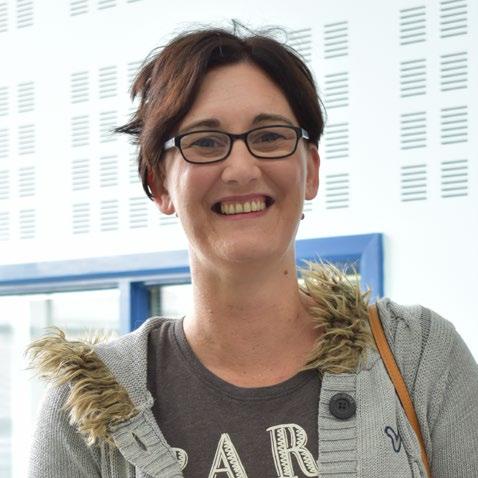
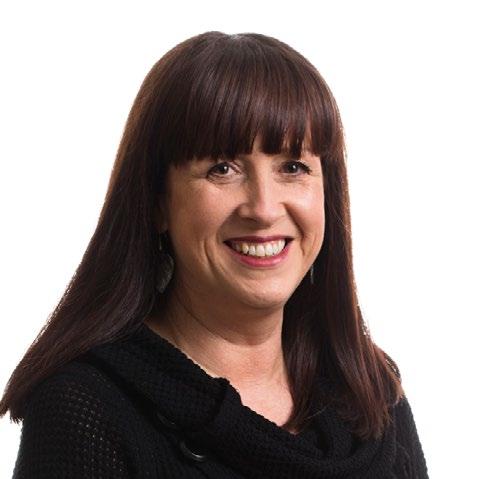
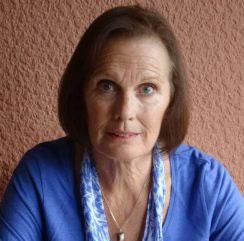


Etc. is made up of two further education colleges, Redcar and Cleveland College and Stockton Riverside College, a sixth form college, Bede Sixth Form, and an engineering training provider, NETA.


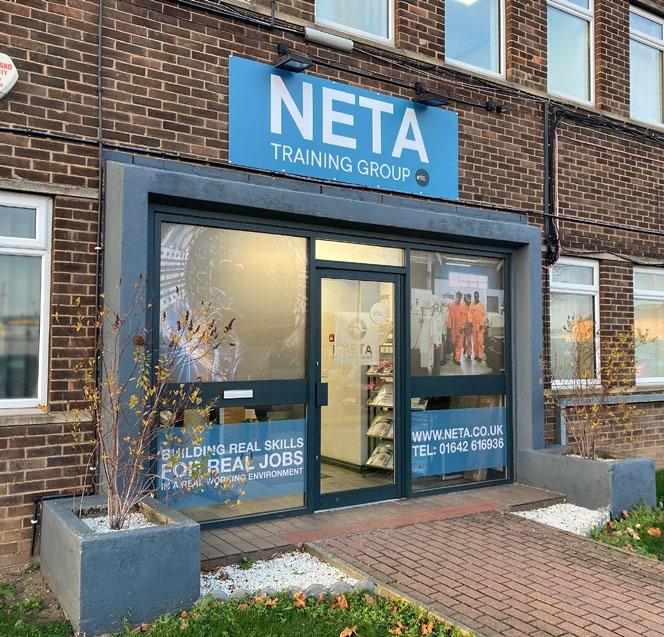

The Group’s curriculum aims to provide people of all ages with the knowledge, skills and behaviours they need to thrive and flourish in their chosen vocation. In short, we aim to build real skills for real jobs.
The curriculum is carefully designed to meet local and regional needs and is aligned to both the Tees Valley and Stockton-on-Tees Strategic Economic Plans. A wide variety of stakeholders have considerable input into the Group’s curriculum and consequently it encompasses experiences and opportunities for students to develop a range of employability skills that enables progression to
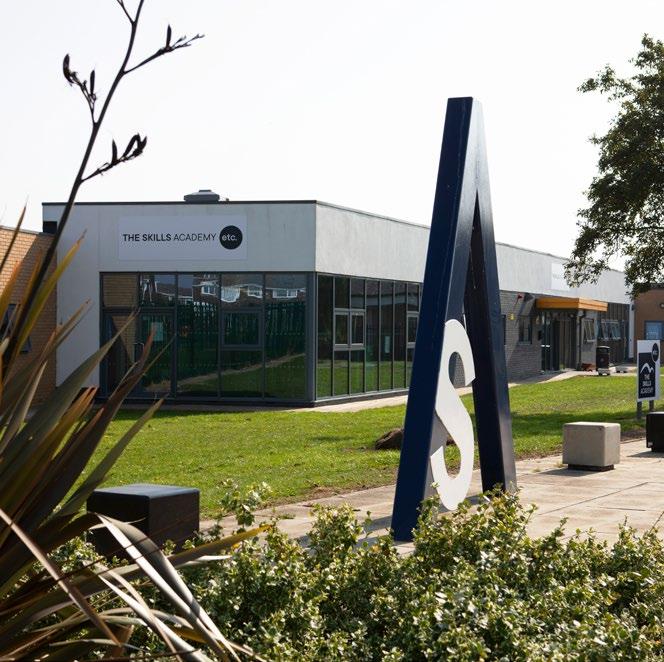
positive outcomes at the end of their course.
Etc. serves the boroughs of Stockton-on-Tees and Redcar & Cleveland in the Tees Valley. 330,000 people, almost half the residents in the Tees Valley, live in the two boroughs. In terms of secondary school performance, Stockton performs well against local and regional performance indicators; Redcar less so, with this trend evident across the majority of social and economic indicators. This is illustrated through the last census that showed Stockton had 23.1% of residents with no qualifications (just above the national average of 22.5%); the rate for Redcar & Cleveland was 28.4%.
The Tees Valley contains some of the most deprived areas in the country according to the Index of Multiple Deprivation with a large percentage of students on Free School Meals.
The group offers provision to both adult learners and young people. Our provision is inclusive and meets the needs of both younger people, adults of an economically active age and those beyond retirement. In 2021/22 the group reported that:

• 35.9% of learners were aged 16-18
• 62.3% were aged 19+
• 1.8% were 14-15 years old
The percentage of the Tees Valley Combined Authority population from an ethnic minority background was 2.8% in 2011 (the last national census survey).
Please note that the table below is excluding NETA Commercial learners.

Achievement
Learners aged 16-18: There were no significant gaps between 16-18 male and female learners. Male achievement was down by 1.9% on last year. Female down by 3.1%. All were above the national rate. Students with learning difficulties demonstrated a comparable performance against college rates at 84.7%, 2.7% above the national average, and a similar picture for learners with high needs.
There is no significant difference for ethnic minority learners. The disadvantaged postcode uplift is 2.% below college rates, however, learners in receipt of free college meals was 0.1% lower than college rates. Learners with a social worker (Child Protection and Child in Need) showed achievement rates of 89.4%, that was 6% above the national average. Children in Our Care (in the care of the local authority) achievement rate is 90.4%, (up by 2.7% on 2020/21) and 7% above the national average. The achievement rate for Care Leavers is 89.7%, which is 6.3% above national average.
Learners aged 19+:
There is no significant difference for gender achievement rates in the 19+ group, with males achieving 2.8% above the national average and females achieving 3.1% above the national average. Learners with disabilities and difficulties in this age group have seen a decline in pass rates since 2020/21. Although above the national rate, at 89.8%, this is 4% below those learners without additional learning needs. For learners who belong to an ethnic minority group and were 19+ achievement was 93.9%, that is 1.7% above that of White British learners. Learners with a Social Worker had 100% achievement, this is 10% above the national average. Achievement rate for Care leavers 94.1%, which is 4.2% above the national average.
Gender retention rates are similar across 16-18 and 19+ year groups, for 16-18 years they are above 92% and for 19+ learners they are over 96%.
Retention of students with learning difficulties at 16-18 and for the 19+ group is comparable with students without, with only a 1% difference. In terms of ethnicity, learners from minority groups in 16-18 and 19+ groups were retained ahead of
white British learners, by 2%. In terms of postcode uplift, retention is strong. Learners in receipt of free college meals shows a similar picture, with a 0.1% lower retention rate than learners not in receipt of free college meals. Learners with a social worker 16-18 (Child Protection and Child in Need) had a retention rate of 91.5% Children in Our Care (in the care of the local authority) have retention rate of 96.6% at 16-18 years and 97% at 19+ years. The retention rate for Care Leavers is 96.6% for 1618 learners and 97.1% for 19+ care leavers. This above the retention rate across the group.
In 2021/22, the north-east of England had the highest rate of child poverty of anywhere in the UK, for the first time overtaking London as the nation’s hotspot for hardship and deprivation. In the NE, 37% of all children and young people were living in poverty over the three years prior to the Covid-19 pandemic (2017/18 to 2019/20) – equivalent to more than 11 children in a classroom of 30 across the region, and up from an average of 34% in the three years period. In 2020/21 the figure rose to 38%. The UK national rate is 31%. Locally, 40.6% of children live in poverty in Redcar and Cleveland. In Stockton, 39.8% of children live in poverty. Child
poverty impacts on education outcomes, from the early years to adult skill formation. At all education stages, attainment for pupils who are identified as ‘deprived’ is poorer than for students from nondeprived group. Researchers at the University of Durham examined the relationship between long-term disadvantage and secondary school attainment. They found that regional differences relate to factors such as poverty and disadvantage, rather than – as often proposed – to school quality. Research for the Department for Education also found a close relationship between family income and attainment at all stages of education (DfE 2017).

In 2021/22, 40.5% of 16-18 learners and 31.4% of 19+ learners were from disadvantaged postcodes.
Free college meals
209 learners aged 16-18 were entitled to free school meals (SRC-9.3%, RCC – 8.9%, Bede 4.1% and NETA 2.6%) Achievement rates are similar to non-free school meals with a difference of 0.1%. Retention of learners who received free college meals was 92.1 this is similar to those not entitled to free college meals where retention was 92.2%.
In line with Government guidance:
• The data has been taken from the March 2021 payroll which includes the snapshot date of 31st March 2021.
• The data includes all employees who are paid on a substantive or fixed term basis
• The data includes basic pay and relevant allowances but not overtime pay, redundancy or termination payments, or non-cash benefits such as those paid through salary sacrifice;
19/20 20/21 21/22
% difference in hourly pay mean 12.0 13.2 12.46
% difference in hourly pay median 13.8 17.9 15.26
% men in upper pay quartile 44.0 47.0 45.3
% women in upper pay quartile 56.0 53.0 54.3
% men in upper middle pay quartile 36.0 35.0 32.9
% women in upper middle pay quartile 64.0 65.0 67.5
% men in lower middle pay quartile 28.0 30.0 35.4
% women in lower middle pay quartile 72.0 70.0 64.2
% men in lower pay quartile 24.0 19.0 19.8
% women in lower pay quartile 76.0 81.0 80.7
% men received bonus pay 1.9 0.4 0.0
% women received bonus pay 2.5 1.4 0.0
% difference in bonus pay mean 27.8 18.4 0.0
% difference in bonus pay median 7.2 16.8 0.0
The Group has an overarching strategy of becoming a ‘Great Place to Work’ and our Staff Survey Results provide an indication of a very positive direction of travel.
In 2021 our staff survey results, with an overall response rate of 97%, included the following responses:
• 99% of staff support the strategic priorities of the college
• 95% agree that the college has made progress in the last 12 months
• 98% agree that they understand their role and contribution to the college priorities
• 92% agree that senior managers are aware of the college’s strengths and areas for development
• 93% would recommend the college as a good place to work
• 95% would recommend the college to family and friends as a great place to study
The most recent data sets show a narrowing of the mean gender pay gap to £1.92 per hour in 21/22 (£2.04 in 20/21), which is an improved position with a lower percentage of women falling within the lower pay quartile 80.3% (81% in 20/21) and also in the lower middle quartiles 63.9% (70% in 20/21).
Our objectives for 2021/22 were as follows:
1. In 2021/22 to understand the staff profile and work force make-up in relation to the protected characteristics and identify any emergent themes aligned to the stated aims in the Single Equality Scheme
2. To promote methods of ensuring all resources are accessible across the group
3. To interrogate attendance, retention and achievement data of LAC/those with Social workers to promote equality of outcomes and interventions
4. Investigate integration of ‘Pronouns’ across the group and produce a draft action plan for implementation
5. Achieve the NNECL Quality Mark
OBJECTIVE 1 - In 2021/22 to understand the staff profile and work force make-up in relation to the protected characteristics and identify any emergent themes aligned to the stated aims in the Single Equality Scheme.
All group staff that wish to disclose their personal sensitive data have done so which has resulted in an (78.5%) increase in the amount of records being populated. In turn providing a more robust data set and understanding of the workforce profile against protected characteristics.
OBJECTIVE 2 To promote methods of ensuring all resources are accessible across the Group
To provide online and face to face training on digital accessibility and ensure digital resources meet accessibility criteria.
All staff complete training and a high proportion of resources meet the criteria.
OBJECTIVE 3 - To interrogate attendance, retention and achievement data of LAC/those with social workers to promote equality of outcomes and interventions.
This is reported to the Vulnerable Learners subgroup meeting. Retention reports now include students with: Social worker, Looked after children and Care leavers.
OBJECTIVE 4 - Investigate integration of ‘Pronouns’ across the Group and produce a draft action plan for implementation.
‘Pronoun Guidance and Etiquette’ has been developed and shared with the Equality Diversity and Inclusion Group.
OBJECTIVE 5 - Achieve the NNECL Quality Mark NNECL Quality Mark | National Network for the Education of Care Leavers.
This has been reviewed and a new Action identified in the 2022/23 Action Plan.
A student using the digital resources at Stockton Riverside College LRC.
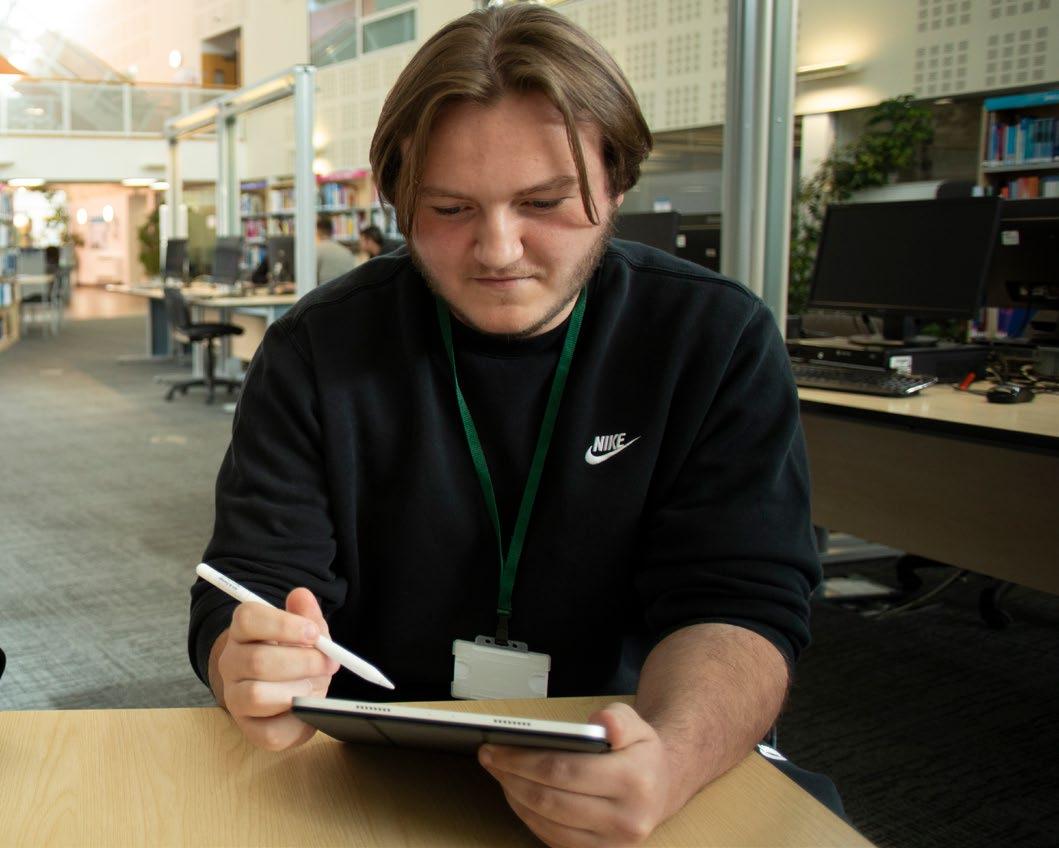

(APTA) students have been named Can You Dance? senior regional champions in November 2021.
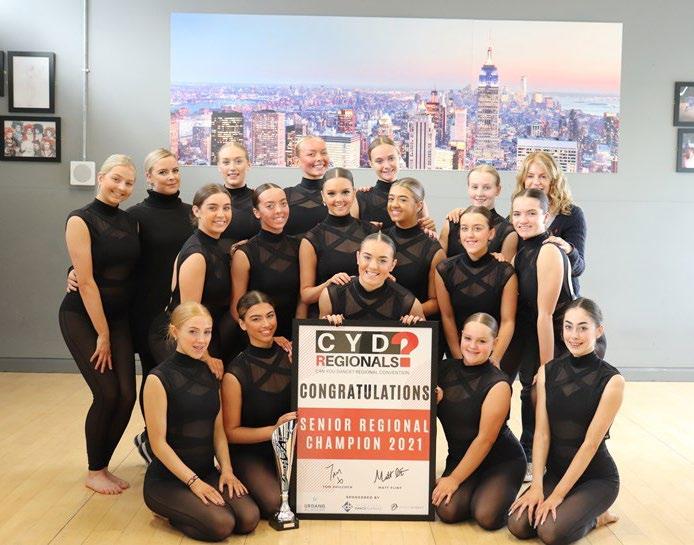
The Prince’s Trust Darlington Team clearing and decorating an outdoor space for Plane Sailing for Heroes, a charity which aids ex-military personnel.

NETA Apprentice Aaron was named ECITB Scholar of the Year at an exclusive awards ceremony at the National Science Museum in London.
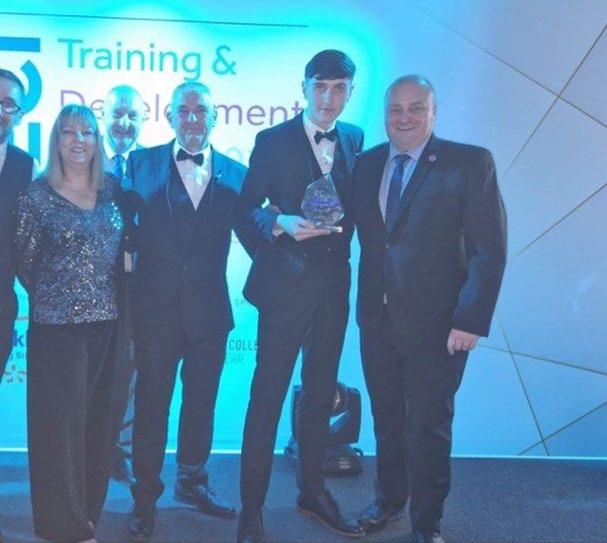
Gino started as a gas apprentice at NETA Training and now runs his own highly successful gas services business. He says he most enjoys the flexible working conditions and being his own boss.

“I get asked a lot where I did my training and I always tell them I went to NETA. The instructors are really helpful, they really support you and they have all the facilities you need in the workshop.”
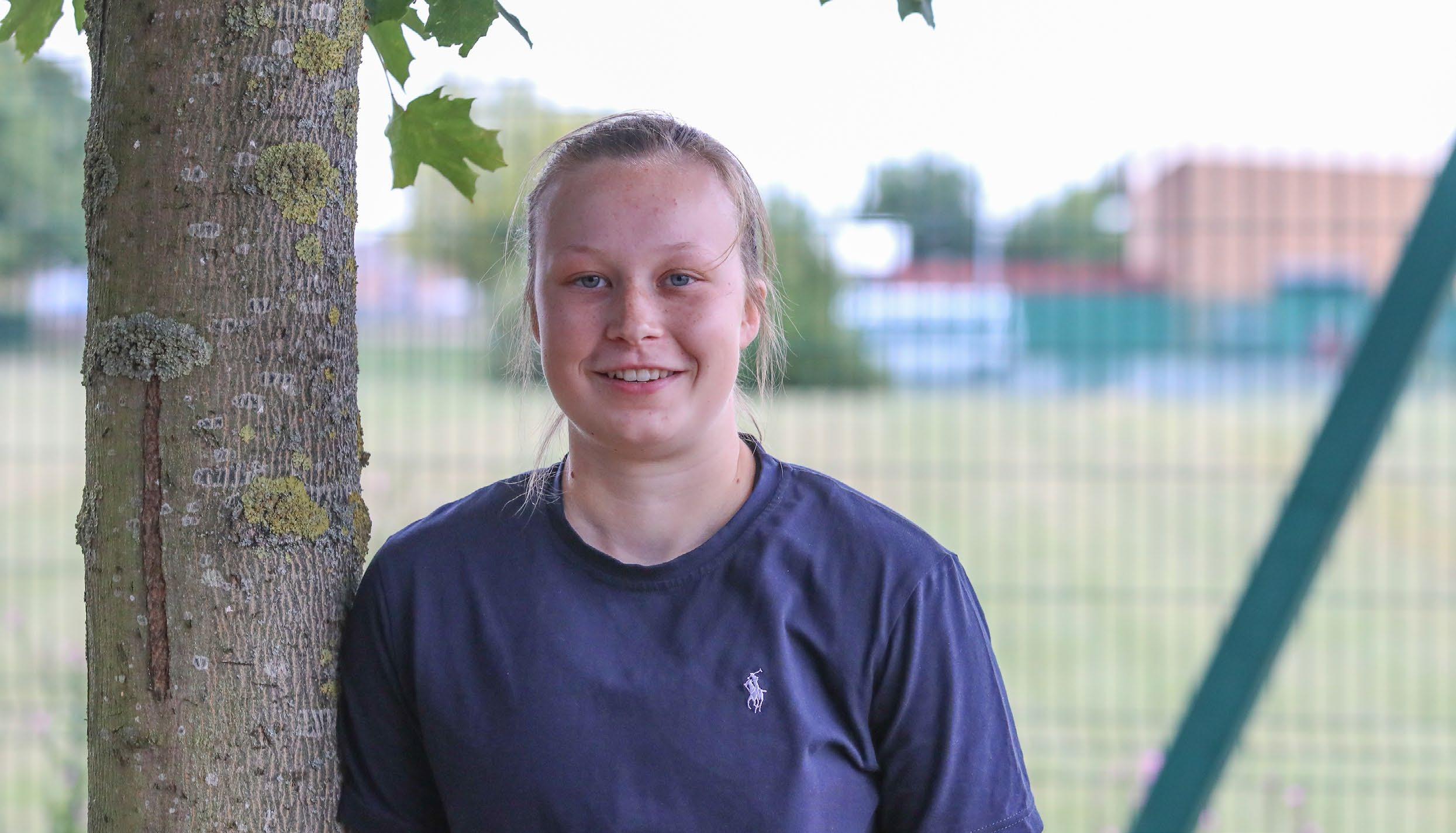
My whole experience on this apprenticeship so far has been brilliant. This is mainly because the team I work with has endless amounts of patience with me. I ask a lot of questions because I am keen to learn, and the team is always happy to answer them.
Georgia recently took part in an interview and was offered a permanent role as a department assistant at Stockton Riverside College. She says: “I would definitely recommend the College to others. It’s friendly and very welcoming.”

Our graduation ceremonies offer the perfect opportunity to celebrate the achievements of our higher education students at the very heart of our communities.
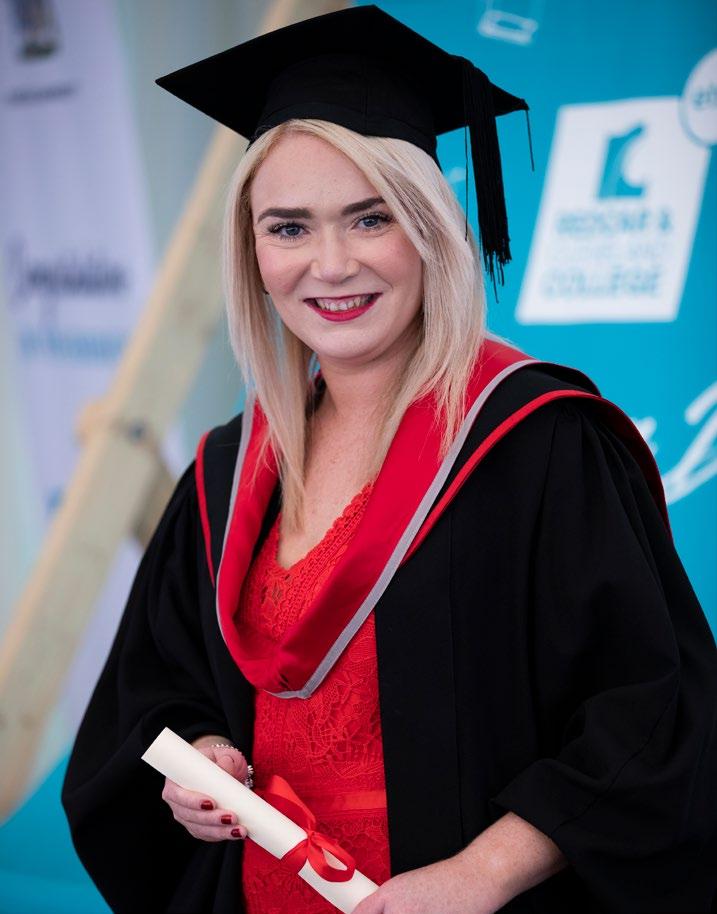

In 2021, Redcar & Cleveland College hosted its third dedicated ceremony at Kirkleatham Walled Garden, while the Stockton Globe was host to Stockton Riverside College’s inaugural graduation ceremony.


Head of Higher Education Karl Johnson said: “It is a fantastic opportunity for us to celebrate our higher education students and their achievements.
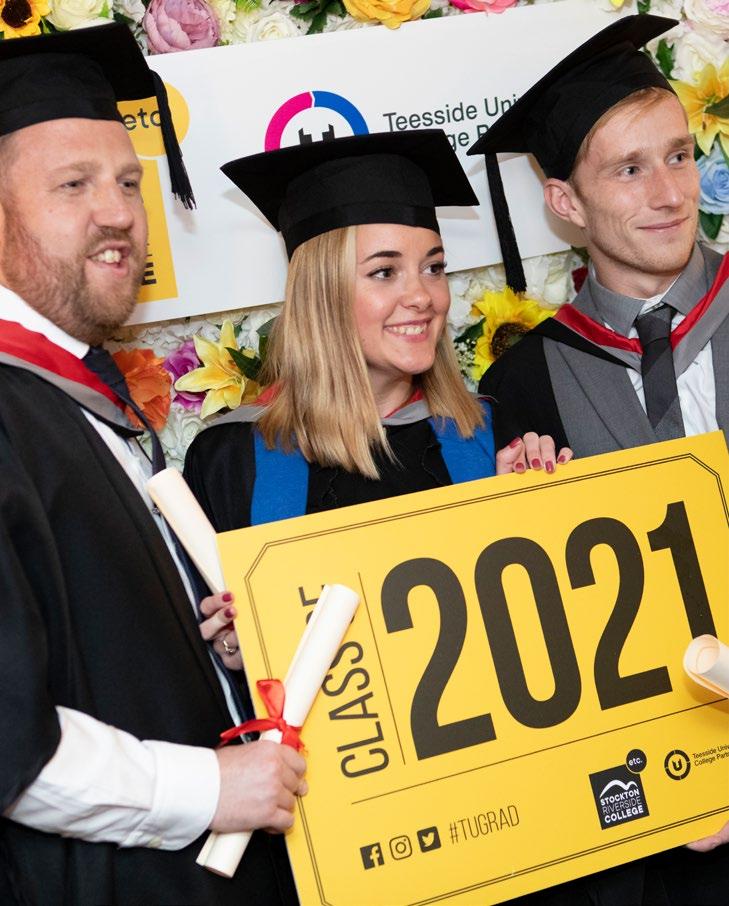
We are very proud to be able to bring these events to Stockton and Redcar. We are a local college focussed on meeting local needs and we are so pleased to be able to deliver graduation events in our boroughs. We feel this raises aspirations and demonstrates to all that you can study higher level qualifications in your local college.”
Working in partnership with Teesside University enables us to offer honours degrees, foundation degrees, HNCs/HNDs, and professional courses in a variety of subjects. The partnership builds on our already successful and long standing relationship with Teesside University.

Graduates

 of 2021 happily pose on a branded deckchair
Stockton College Graduates of 2021 happily pose in Stockton Globe
of 2021 happily pose on a branded deckchair
Stockton College Graduates of 2021 happily pose in Stockton Globe
I really enjoyed the smaller environment at Skills Academy. My tutor Chris was great and we had some really good guest speakers who came in to speak with us. I also really enjoyed working on the tunnel project.

The Education Training Collective achieved a GOOD Grade from Ofsted in May 2022.
“Students and apprentices benefit from useful and relevant training in their local communities which meets the needs of employers and the priorities of the local enterprise partnership.”
- OFSTED 2022
Our objectives for 2022/23 are as follows:
1. Ensure people are appropriately trained and supported to understand and promote equality & diversity and prevent discrimination.
2. Work towards achieving the National Disability Confident Employer scheme at Level 2.
3. Reduce the proportion of ‘unknown’ equality data we hold on our employees.
4. To ensure that all teaching, learning, training and enrichment activities promote appropriate and meaningful opportunities to explore Equality & Diversity, British values (College Core Values) to develop both understanding and confidence of all learners;

5. To interrogate attendance, retention and achievement data of Children in Our Care/those with Social workers to promote equality of outcomes and interventions.
6. Investigate integration of ‘Pronouns’ across the group and produce a draft action plan for implementation.
7. Understand the education of care experienced learners and other children with social workers.
8. Achieve the Rainbow Flag award – LGBT+.
9. To promote methods of ensuring all resources are accessible across the group.